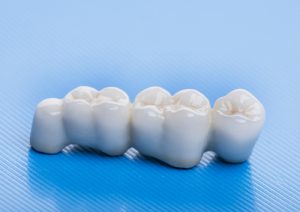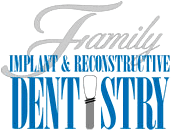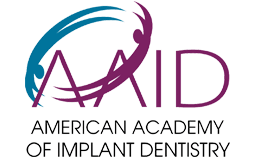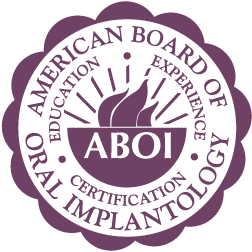Understanding How Much Dental Bridges Cost
Dental bridges are a well-regarded and practical solution for restoring missing teeth. They offer a natural-looking result that enhances your smile and oral function. However, one key consideration is the expense associated with dental bridges for natural teeth replacement.
Our Havre de Grace, MD dentist is committed to ensuring everyone receives the dental care they require. Learn more about the costs related to dental bridges below. For further information, feel free to contact our dental office today by calling (410) 939-5800.
 How Much Do Dental Bridges Cost?
How Much Do Dental Bridges Cost?
Typically, the dental bridge cost ranges from $500 to $1,200 per tooth. The price of dental bridges can fluctuate based on several factors, including the complexity of the procedure, the number of missing teeth, the materials used, and the dental practice’s location. If a three-unit bridge is needed to replace a single missing tooth, the total cost could be between $1,500 and $3,600.
Factors That Influence Dental Bridge Cost
- Type of Bridge: Implant-supported bridges are generally more expensive than traditional dental bridges.
- Materials Used: The choice of material for the artificial teeth can greatly influence the price, with gold and all-porcelain typically being costlier than other options.
- Number of Teeth Being Replaced: The cost increases with the number of teeth that need replacement.
- The Complexity of the Procedure: Additional procedures, such as gum surgery or root canal therapy, required before placing a bridge will raise the overall cost. Some may also opt for teeth whitening before replacing missing teeth, adding to the expenses.
- Geographic Location: Dental bridge costs can differ significantly by region, with urban areas often incurring higher fees than rural ones.
- Dentist’s Experience and Reputation: Dentists with extensive experience or specialization might charge more for their dental bridge services.
- Dental Insurance: The extent of coverage provided by your dental insurance will impact your out-of-pocket costs. Not all dental insurance plans cover bridges, or they might only cover part of the cost.
Cost of Dental Bridges vs. Other Restorative Options
When compared to other tooth replacement options, dental bridges are moderately priced . Dentures are usually less costly, with prices ranging from $500 to $2,500 per arch. However, dentures may not offer the same stability, comfort, and natural look as dental bridges.
. Dentures are usually less costly, with prices ranging from $500 to $2,500 per arch. However, dentures may not offer the same stability, comfort, and natural look as dental bridges.
Dental implants, conversely, are a pricier alternative, with costs ranging from $1,500 to $6,000 per implant, depending on various factors. While dental implants provide long-term benefits and a high success rate, they often involve more extensive surgical procedures and a longer treatment timeline.
Dental Insurance
Dental insurance plans might cover a portion of the dental bridge cost, but coverage can vary. Some plans might cover a percentage of the cost, while others may have a fixed maximum annual benefit. Consider the following information regarding insurance for a dental bridge procedure:
- Coverage: Dental insurance policies differ widely in their coverage. Some dental insurance plans might cover a substantial portion of the cost of dental bridges, while others might cover only a fraction or none at all.
- Types of Dental Bridges: There are various types of dental bridges (traditional fixed bridge, cantilever dental bridge, Maryland dental bridge, and implant-supported bridge). The type and materials used can affect the cost and the amount of coverage you receive from your insurance.
- Percentage of Coverage: Dental insurance plans often cover dental procedures based on a tiered system:
- Preventive care (cleanings, exams): Often covered at 100%
- Basic procedures (fillings, extractions): Often covered at 70-80%
- Major procedures (dental crowns, bridges, dentures): Often covered at 50%
- Waiting Periods: Some dental insurance plans have waiting periods for major dental procedures. This means you may need to have the insurance policy for a certain period before you can receive coverage for procedures like dental bridges.
- Annual Maximums: Dental insurance often has an annual maximum benefit. Once your covered treatments reach this amount, the insurance will not pay for additional treatments until the next policy year.
- Pre-treatment Estimates: Before getting a dental bridge, it’s a good idea to request a pre-treatment estimate from your dentist. They can submit a claim to the insurance company detailing the planned procedure, allowing the insurance company to provide an estimate of what they will cover and what your out-of-pocket expense might be.

- Network: If you have a Preferred Provider Organization (PPO) plan or a Health Maintenance Organization (HMO) plan, the amount of coverage you receive might depend on whether your dentist is in-network. Seeing an in-network dentist often results in higher coverage and lower out-of-pocket expenses.
- Discount Plans: While not insurance, some individuals opt for dental discount plans. These plans offer discounts on various dental procedures, including bridges, for an annual fee. If you don’t have dental insurance, this might be an option to consider.
Financing Dental Bridges
Financing a dental bridge can make the process more affordable, especially for those without dental insurance or with insurance that doesn’t cover the full cost of a new bridge.
Dental Office Payment Plans
Many dental offices offer in-house financing or payment plans. These plans often allow you to pay for your dental work in installments over a specified period. Some dental offices might offer interest-free plans if the amount is paid within a certain timeframe.
Medical Credit Cards
Cards like CareCredit are designed specifically for medical and dental expenses. They may offer promotional periods with 0% interest. Be cautious: If you don’t pay off the balance by the end of the promotional period, you might be retroactively charged a high interest rate from the original purchase date.
Personal Loans
Personal loans can be taken from a bank, credit union, or online lender. They can be used for any purpose, including dental work. Interest rates and terms vary based on your creditworthiness.
Healthcare Installment Loans
Some lenders specialize in loans specifically for medical or dental procedures. These loans can offer fixed interest rates and set repayment terms, making it easy to budget.
Flexible Spending Accounts (FSAs) & Health Savings Accounts (HSAs)
If you have an FSA or HSA through your employer, you can use the pre-tax funds in these accounts to pay for dental procedures. Ensure you know the annual contribution limits and any rules about using the funds.
Dental Schools
Consider having the procedure done at a dental school. While the work is performed by students, they are supervised by experienced dentists. Dental schools often offer procedures at a reduced cost.
Dental Discount Plans
While not insurance, dental discount plans can provide significant savings on dental procedures, including bridges. For an annual or monthly fee, you can access reduced rates at participating dentists.
Frequently Asked Questions
Are there any additional costs associated with dental bridges?
Are there any discount programs or community dental clinics that offer reduced-cost dental bridges?
What is a cheaper alternative to a dental bridge?
Is a dental bridge better than a dental implant?
Making an Informed Decision for Your Smile and Budget with Dental Insurance Coverage Information
Dental bridges are an effective and aesthetically pleasing option for replacing missing teeth. While the cost of dental bridges can vary, it’s important to consider the long-term benefits they provide. Call Family Implant and Reconstructive Dentistry in Havre De Grace, MD, at (410) 939-5800 today to schedule a consultation. Our dental professional team is happy to meet new and returning patients from the Havre De Grace area, including Perryville, Aberdeen, and Churchville, MD.




